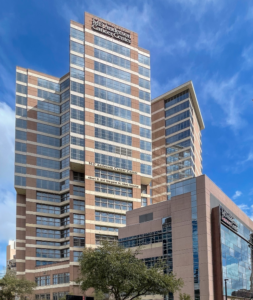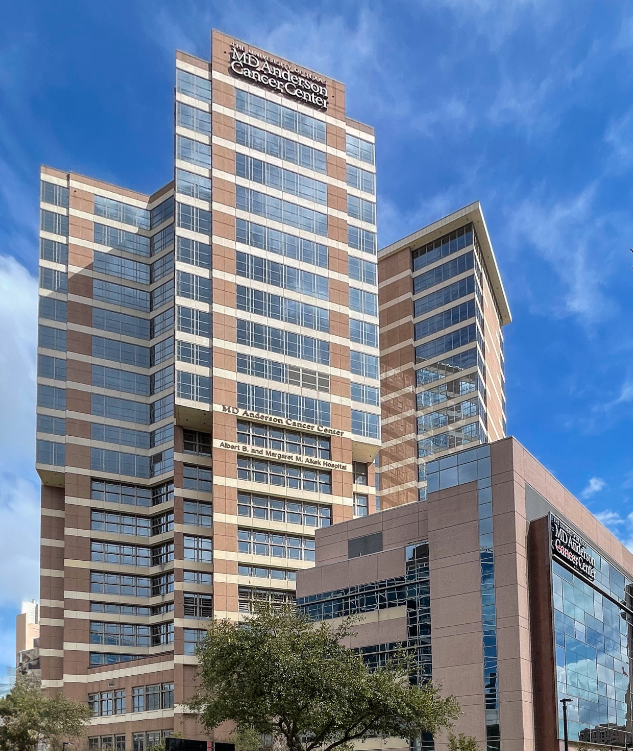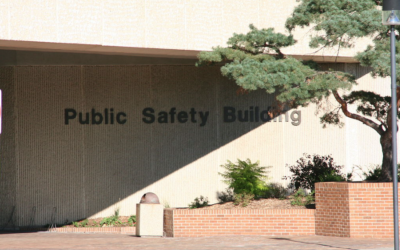As the demand for modernized and expanded infrastructure surges, one sector stands out with unprecedented momentum: healthcare facilities. Healthcare facilities are critical components of the nation’s infrastructure and from what can be seen in planning documents, it appears that almost every state and/or region in America is evaluating some type of healthcare-related-upgrade. The obvious needs and high interest in these types of projects will present a wealth of new opportunities for contracting throughout the U.S.
A $2.5 billion project to expand the MD Anderson Cancer Center located in the UT Austin Medical Center will involve the construction of two hospital towers: one operated by MD Anderson which will be dedicated to cancer treatment and the other by the University of Texas offering a broader range of medical services. The new facility will address an increasing need for specialized healthcare services in the region. The facility’s design will incorporate the necessary infrastructure to accommodate both current and future needs. The integration of two towers into one facility will provide a streamlined, centralized location for patients to receive specialized treatment and additional medical services. The pre-RFP construction services are set to begin in 2026

Photo courtesy of Kenneth C. Zirkel.
A large expansion and renovation project in Pullman, Washington is set to launch in early 2025. With a cost projection of somewhere between $45 million and $50 million the Pullman Regional Hospital expansion project aims to position the facility to better manage an increase in demand for specialized medical services while maintaining efficient operations and a high standard of care. The original hospital was constructed in 2004 and over the past 20 years healthcare methods have evolved, technology has moved forward, and the population that the system needs to accommodate has increased significantly.
The design focuses on creating increased capacity within key areas of the hospital, including the emergency department and surgical spaces. It will also renovate critical areas such as the maternity ward. The project will incorporate updated systems designed to improve medical workflows, optimize space utilization, and increase capacity to support a higher volume of services. Many critical infrastructure updates including the enhancement of utilities and communication networks, are included, ensuring the facility is equipped for future operational demands.
Officials at the University of South Carolina in Columbus will oversee the construction of a new neurological hospital designed to advance operational efficiency and enhance the infrastructure supporting neurological and neurosurgical care. It carries a cost estimate of $50 million. The new facility will provide115 beds, all engineered to function as intensive care units if required. It will have decentralized nursing stations on each floor as well as laboratories and research spaces positioned to ensure alignment between academic and operational objectives. The design documents outline a high focus on long-term sustainability and the potential for future growth. A construction launch is planned for 2025.
In early 2025, site preparation will begin in Harrisburg, Pennsylvania for the construction of a $450 million specialized healthcare facility. The Joint Laboratory Complex, which will be located at the former Harrisburg State Hospital site, will be designed as a 300,000-square-foot state-of-the-art laboratory. It will support the state’s Departments of Health, Agriculture, Environmental Protection and Conservation, and Natural Resources agencies. It will also play a critical role in advancing public health testing, food safety assessments, and disease diagnostics—all of which are key components of healthcare services in the state. Construction will include controlled environments, bio-safety protocols, and leading-edge laboratory technology. Another project related to the laboratory will deliver a 90,000-square-foot forensics laboratory for the Pennsylvania State Police, further emphasizing the healthcare and life sciences aspects of the development. These two new facilities will become a critical part of the state’s healthcare services. Construction is slated to begin in 2026.
Healthcare projects in 2025 will require an abundance of technology, a focus on modern healthcare environments, and strong collaboration. Companies prepared to deliver this type of expertise will be in high demand.







